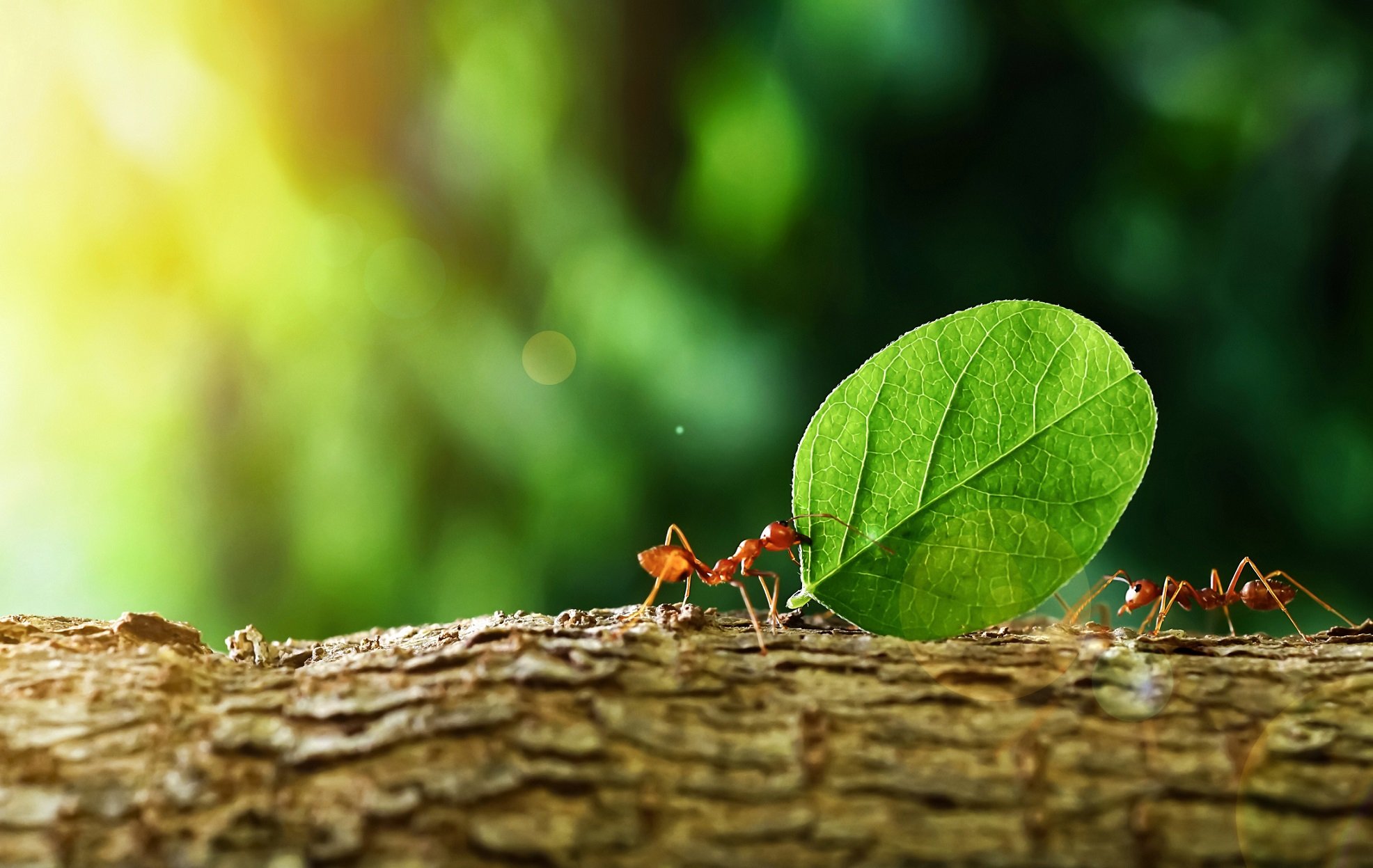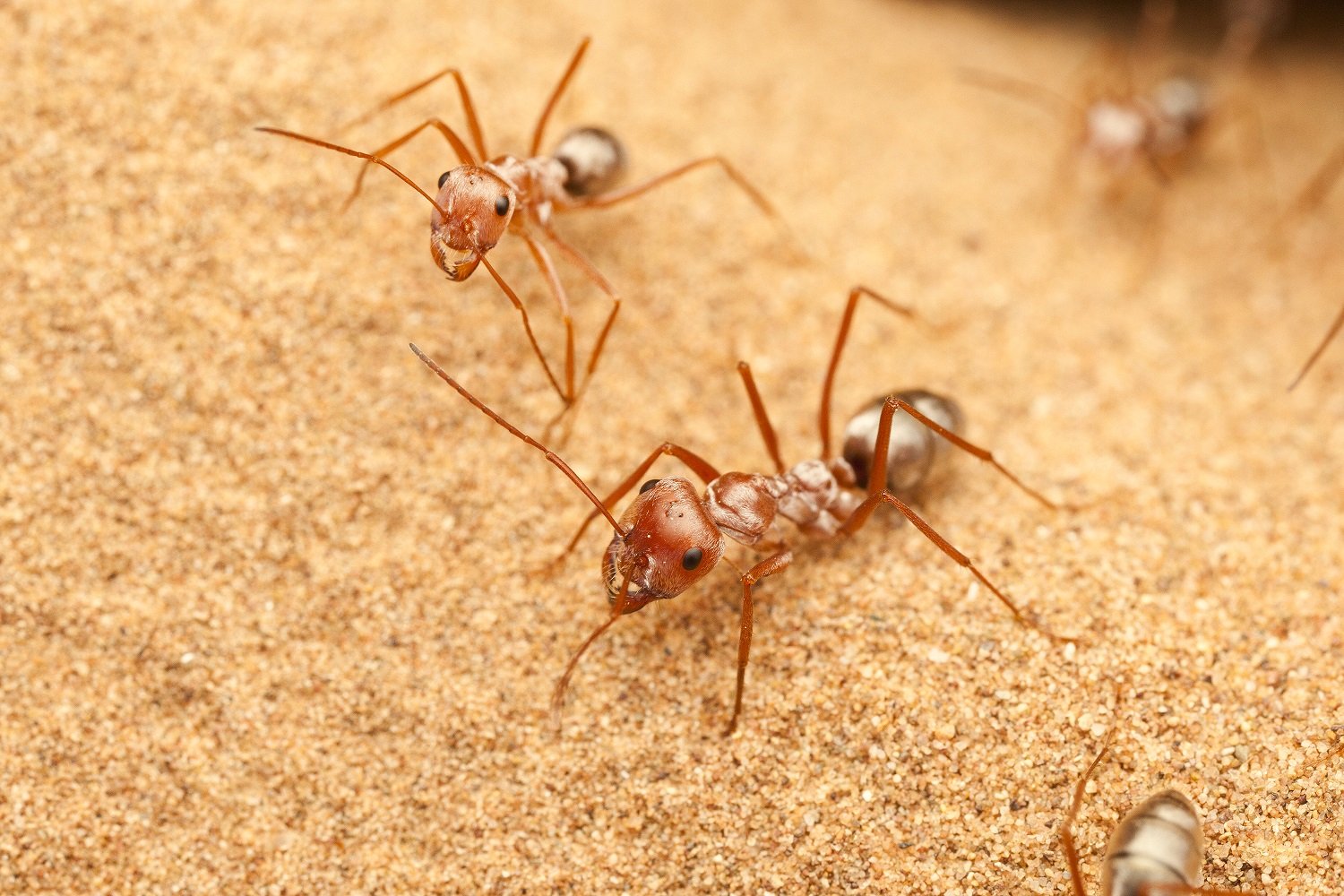The world is teeming with an estimated 14,000 species of ants that, taken together, number in the quadrillions! These ubiquitous insects have spread across all continents except for the frozen expanse of Antarctica, marking an incredible evolutionary success story.
But how did they manage to establish such a significant presence on our planet?
Image Credit: Oasishifi via Shutterstock / HDR tune by Universal-Sci
A team of researchers went to the bottem of this and published their findings in the peer-reveiwed scientific journal Evolution Letters. In this article we will discuss their intruiging findings
The team, led by Matthew Nelsen, a research scientist at the Field Museum in Chicago, combined fossil records, DNA data, and modern species' habitat preferences to retrace the ants' journey. They painstakingly collected and studied climate data of 1,400 modern ant species and then contrasted this with a time-scaled reconstruction of the ant family tree derived from genetic information and fossilized amber-encased ants.
Interesting related article: Scientists estimate the number of ants on Earth at a whopping 20 quadrillion! (Universal-Sci)
Unraveling the Ant-Plant Symbiosis Through Evolution
In their research, the scientists discovered that ants' evolutionary path was intertwined with that of flowering plants. Approximately 140 million years ago, ants and flowering plants - or angiosperms - originated and gradually spread from forests to other habitats. This simultaneous spread wasn't a mere coincidence; in fact, the ants were closely following the flowering plants' lead.
Exploring this further, the team found that around 60 million years ago, ants primarily resided in forested areas, building their nests underground. However, as some forest-dwelling plants evolved to release more water vapour through their leaves, creating rainforest-like conditions, ants began to ascend.
Alongside ants, other creatures like frogs and snakes also transitioned to this new, wetter environment. They weren't just adapting to a new climatic condition - they were forming a brand new, vibrant ecosystem up in the trees!
The scientists also discovered that as flowering plants began to adapt to drier, more arid regions outside of the forest, ants took this as a cue to move as well. Plants seem to have incentivized this migration by evolving specific features to feed ants, such as fleshy appendages on seeds called elaiosomes. As ants harvested these elaiosomes, they inadvertently aided in the dispersal of plant seeds, creating a mutual benefit for both species.
Image Credit: Pavel Krasensky via Shutterstock / HDR tune by Universal-Sci
The Far-Reaching Impact of Plant Communities on Biodiversity
The research provides more than just fascinating insights into the ants' evolutionary journey. It underlines the profound and cascading impact that shifts in plant communities - due to historical and modern climate change - can have on other dependent organisms, including ants. As Nelsen points out, this research reinforces the idea that plants play a critical role in shaping ecosystems, and any alterations to their communities can have significant ripple effects on the biodiversity and the structure of ecosystems.
Plants have been the silent architects of the world, influencing the ecology and evolution of numerous organisms, including ants. This study has underscored that, providing another compelling example of the powerful interplay between different life forms on our planet. Our ant allies and their blossoming companions indeed share a deep-seated relationship, having jointly navigated the path of evolution for over a hundred million years. It's a testament to the intricacy of life and its remarkable adaptability, reminding us of the delicate balance that exists in nature.
For those interested in more details about these findings be sure to check out the paper published in the peer-reviewd science journal Evolution Letters listed below this article.
Sources and further reading:
Macroecological diversification of ants is linked to angiosperm evolution (Evolution Letters / Oxford Academic)
Scientists estimate the number of ants on Earth at a whopping 20 quadrillion! (Universal-Sci)
Ants may be the key to explaining why the human brain mysteriously shrank 3000 years ago (Universal-Sci)
Six amazing facts you need to know about ants! (Universal-Sci)
Too busy to follow science news during the week? - Consider subscribing to our (free) newsletter - (Universal-Sci Weekly) - and get the 5 most interesting science articles of the week in your inbox
FEATURED ARTICLES:









